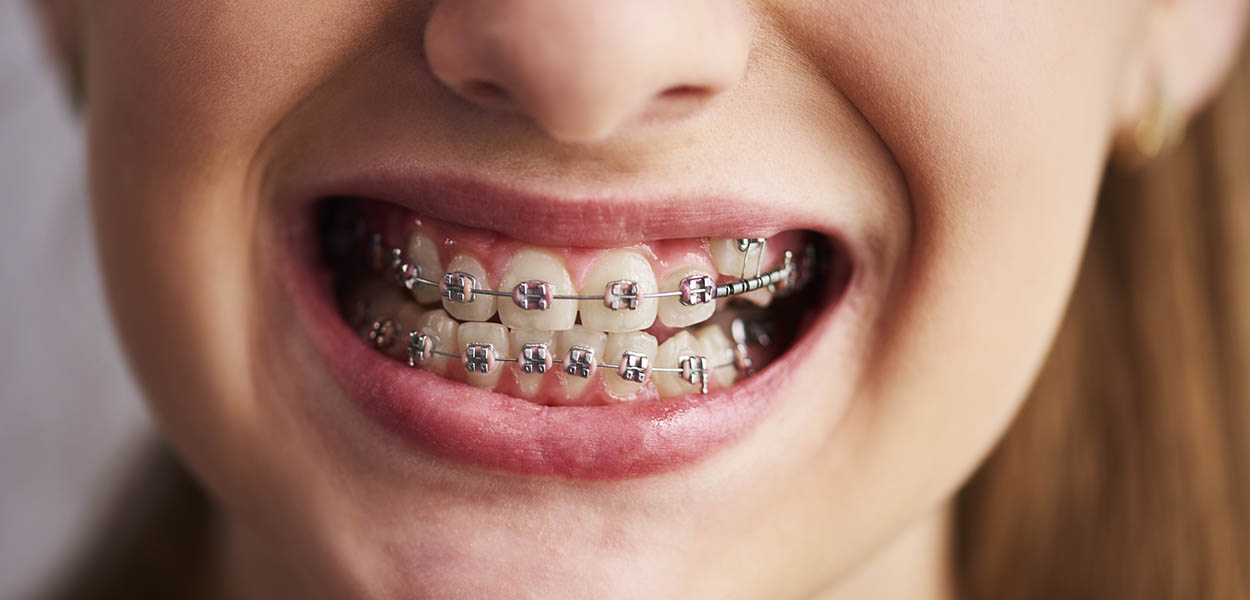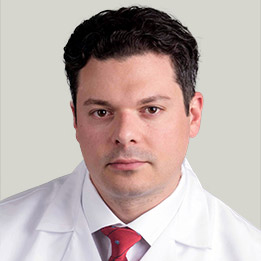01
July
4
Comments
What Causes Crooked Teeth?


Dear Dr. S.,
Someone told me recently that crooked teeth can be inherited from their parents. Is that true? If my parents had braces as a teenager, does that mean I’ll need them, too?
Sincerely,
Kelly M.
Someone told me recently that crooked teeth can be inherited from their parents. Is that true? If my parents had braces as a teenager, does that mean I’ll need them, too?
Sincerely,
Kelly M.

Dear Kelly,
It’s true, in some cases, crooked teeth are a genetic trait. Just as you inherited your brown eyes or blonde hair from your mom or dad, you can also inherit an imperfect smile. But, that doesn’t mean just because one or both of your parents had braces that you will need them, too. It does mean, though that you should be seeing an orthodontist regularly to monitor the growth of your jaw and how your permanent teeth are erupting.
The American Association of Orthodontists recommends that children see an orthodontist by the age of seven. While you may not need treatment that young, it gives us the chance to evaluate the growth of your jaw, and see how the permanent teeth are erupting. Some people inherit a smaller jaw from their parents, and that leads to crowding and crooked teeth as the permanent teeth erupt.The only way to know for sure if you’ll need braces is to begin a relationship with an orthodontist. He or she will be able to evaluate you, and then begin treatment if and when it is indicated.Sincerely,
Dr. S.
It’s true, in some cases, crooked teeth are a genetic trait. Just as you inherited your brown eyes or blonde hair from your mom or dad, you can also inherit an imperfect smile. But, that doesn’t mean just because one or both of your parents had braces that you will need them, too. It does mean, though that you should be seeing an orthodontist regularly to monitor the growth of your jaw and how your permanent teeth are erupting.
The American Association of Orthodontists recommends that children see an orthodontist by the age of seven. While you may not need treatment that young, it gives us the chance to evaluate the growth of your jaw, and see how the permanent teeth are erupting. Some people inherit a smaller jaw from their parents, and that leads to crowding and crooked teeth as the permanent teeth erupt.The only way to know for sure if you’ll need braces is to begin a relationship with an orthodontist. He or she will be able to evaluate you, and then begin treatment if and when it is indicated.Sincerely,
Dr. S.
Dear Dr. S.,
My wisdom teeth are starting to come in, and my mom said I need to have them removed right away so they don’t mess up my smile. Is that really needed?
Sincerely,
Jonathan N.
My wisdom teeth are starting to come in, and my mom said I need to have them removed right away so they don’t mess up my smile. Is that really needed?
Sincerely,
Jonathan N.

Dear Jonathan,
Your mom isn’t alone in thinking that wisdom teeth can cause a previously perfect smile to become crooked or misaligned. But in most cases, that isn’t true. Newer research shows us that allowing your wisdom teeth to come in won’t cause your other teeth to become crowded or misaligned.While you may find things that say wisdom teeth can push your other teeth, leading to bite problems, researchers say that these additional molars can’t provide the force that would be needed to alter your bite.While there may be valid reasons for having your wisdom teeth removed, the fear of altering your bite probably isn’t one.
Sincerely,
Dr. S.
Your mom isn’t alone in thinking that wisdom teeth can cause a previously perfect smile to become crooked or misaligned. But in most cases, that isn’t true. Newer research shows us that allowing your wisdom teeth to come in won’t cause your other teeth to become crowded or misaligned.While you may find things that say wisdom teeth can push your other teeth, leading to bite problems, researchers say that these additional molars can’t provide the force that would be needed to alter your bite.While there may be valid reasons for having your wisdom teeth removed, the fear of altering your bite probably isn’t one.
Sincerely,
Dr. S.

Dear Dr. S.,
My sister and I both used a pacifier as little kids. Her bite is really off and she needs braces. Her orthodontist thinks it was because of using a pacifier. But my bite seems to be okay – why would they be so different?Sincerely,
Gina O.
My sister and I both used a pacifier as little kids. Her bite is really off and she needs braces. Her orthodontist thinks it was because of using a pacifier. But my bite seems to be okay – why would they be so different?Sincerely,
Gina O.

Dear Gina,
Pacifier use and thumbsucking are two habits that can lead to the need for orthodontic treatment for some children. We typically recommend that children use a pacifier no longer than the age of two, and stop sucking their thumb no later than the age of five.It’s true that not every child who uses a pacifier or sucks a thumb will need braces. And there are a few reasons for that. The first is how long the habit continued. Some children only use a pacifier as infants, while others continue into early childhood. The longer you use a pacifier, or suck your thumb, the higher the chances are that you can do damage to your growing mouth and jaw.Another issue with pacifier use is how hard the user sucks on it. Some children keep a pacifier or thumb in their mouth, but are more passive suckers – meaning they enjoy the comfort it brings, but don’t actively suck it all the time. Others are more voracious suckers, which can cause the teeth and jaw to shift.We recommend that parents work to break a pacifier or thumbsucking habit as early as possible to prevent the need for orthodontic issues.Sincerely,
Dr. S.
Pacifier use and thumbsucking are two habits that can lead to the need for orthodontic treatment for some children. We typically recommend that children use a pacifier no longer than the age of two, and stop sucking their thumb no later than the age of five.It’s true that not every child who uses a pacifier or sucks a thumb will need braces. And there are a few reasons for that. The first is how long the habit continued. Some children only use a pacifier as infants, while others continue into early childhood. The longer you use a pacifier, or suck your thumb, the higher the chances are that you can do damage to your growing mouth and jaw.Another issue with pacifier use is how hard the user sucks on it. Some children keep a pacifier or thumb in their mouth, but are more passive suckers – meaning they enjoy the comfort it brings, but don’t actively suck it all the time. Others are more voracious suckers, which can cause the teeth and jaw to shift.We recommend that parents work to break a pacifier or thumbsucking habit as early as possible to prevent the need for orthodontic issues.Sincerely,
Dr. S.


